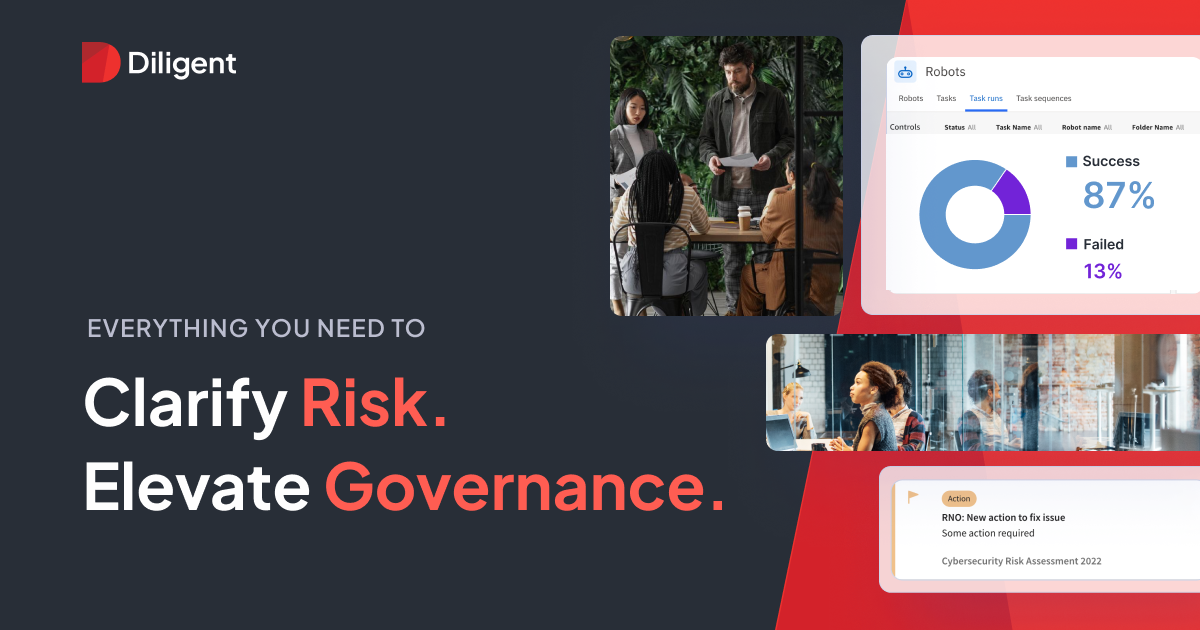
Legal compliance is a vital process in which companies adhere to complex rules, policies, and procedures that regulate business practices in a specific jurisdiction. It involves understanding the legislation applicable to the organization and ensuring compliance at all times. Neglecting legal compliance can result in severe consequences such as fines, reputational damage, and even legal ramifications for directors. To mitigate these risks, organizations must establish an efficient compliance program.
The Importance of Compliance and Legal Departments Working Together
Although compliance and legal are distinct concerns, they are closely intertwined. An organization’s legal department plays a crucial role in ensuring, promoting, and facilitating compliance. Legal professionals help implement effective compliance policies, educate employees on these policies, stay informed about relevant regulations, and identify potential violations. By working in partnership, compliance and legal departments can ensure ethical and effective operations.
The Legal Requirements of Compliance
Legal compliance has two aspects: complying with the laws and regulations governing business operations and establishing internal compliance systems. Organizations need to meet both requirements to operate in good standing. A comprehensive legal compliance program should include elements such as standards, policies and procedures, compliance program administration, employee screening and evaluation, communication and training on compliance issues, monitoring and auditing systems, disciplinary measures for non-compliance, and investigations and remedial measures.
Evaluating Legal Compliance: Steps for Success
To measure legal compliance effectively, in-house counsel, legal operations, and compliance teams must work together. Follow these seven steps to evaluate compliance thoroughly and ensure legal operation in every jurisdiction:
Step 1: Know the Regulation
Conduct thorough research on the regulations applicable to your industry and jurisdiction. Understand your entity’s requirements and devise plans to fulfill them. Consider various aspects such as data protection, cybersecurity, health and safety, environmental responsibilities, financial and accounting requirements, employment law, tax law, advertising regulation, and corporate law.
Step 2: Clarify Your Reporting Duties
Different sectors, industries, and jurisdictions have specific reporting requirements. Be aware of acronyms like FATCA, CRS, SOX, and BEPS, which entail reporting duties. Consider the terms of funding, ethical bodies, or industry organizations your company is affiliated with and ensure timely compliance with quarterly or annual reporting obligations.
Step 3: Take Stock of Policies
Regularly review your legal compliance policies to ensure they remain up to date and fit for purpose. Reflect any changes in your business or industry in policy updates, and ensure that employees are aware of and adhere to these policies through frequent spot checks and annual reviews.
Step 4: Check Your Records
Maintain strong record-keeping practices across all entities within your organization. Establish a centralized repository for easy access and ensure compliance teams know what records to keep. Additionally, prioritize entity governance to foresee the impact of regulatory changes, and regularly evaluate legal compliance.
Step 5: It’s Not Just About Laws
Evaluate compliance beyond legal requirements. Consider industry codes of practice, ethical guidelines, and requirements from licensing, funding, or tenancy agreements. Cast a wider net to obtain a comprehensive understanding of your company’s compliance health.
Step 6: Remember Your Employees
Ensure effective communication of compliance requirements to all employees. Conduct regular training and education programs, and schedule check-ups to ensure everyone understands and fulfills their compliance responsibilities, from the board level downwards.
Step 7: Schedule Regular Compliance Checks
Continuously monitor your organization’s third parties to identify potential risks. Stay updated on regulatory changes and deadlines, ensuring that processes and filings occur as required. Real-time data on third parties will provide a comprehensive picture of compliance and enable necessary adjustments.
How to Ensure Full Legal Compliance
Businesses should evaluate compliance at two levels: complying with external rules imposed by government regulations or industry bodies, and complying with internal control systems. It is crucial to have quick and easy access to up-to-date data, as measuring compliance using outdated or incorrect data can have long-lasting financial and reputational consequences.
Technology’s Role in Legal Compliance
Compliance software can streamline legal compliance tasks and aid in establishing credible and defensible compliance programs. Effective compliance solutions can help organizations stay on top of regulatory obligations, assess and monitor third parties, and centralize policy and training management.
For more information on legal compliance and its importance in driving ethical business practices, visit Instant Global News.
FAQs
Q: Why is legal compliance essential for businesses?
A: Legal compliance ensures that businesses operate ethically and within the boundaries of applicable laws and regulations. It helps avoid costly fines, reputational damage, and legal consequences.
Q: What is the role of a company’s legal department in compliance?
A: The legal department plays a crucial role in implementing effective compliance policies, educating employees, staying informed about regulations, identifying potential violations, and conducting internal investigations.
Q: How can organizations evaluate legal compliance effectively?
A: By following a structured approach that involves comprehensive research on applicable regulations, clarification of reporting duties, policy review, record-checking, consideration of non-legal requirements, employee training, and regular compliance checks.
Conclusion
Legal compliance is a critical aspect of business operations that ensures adherence to regulations and ethical practices. Compliance and legal departments must work together to establish effective compliance programs, evaluate legal compliance regularly, and leverage technology to streamline and enhance compliance processes. By prioritizing legal compliance, organizations can foster a culture of integrity and mitigate potential risks, ensuring long-term success and sustainability.
